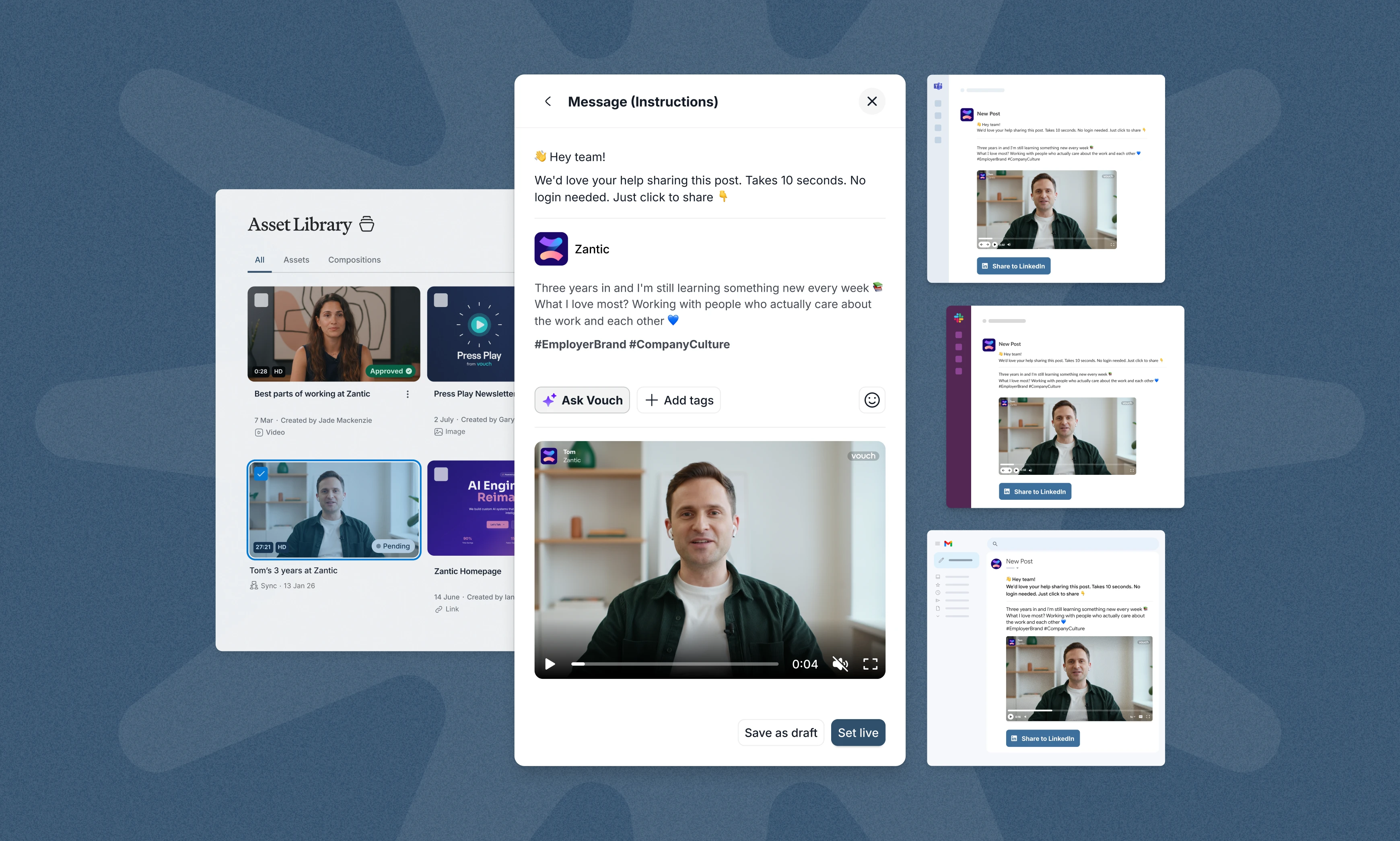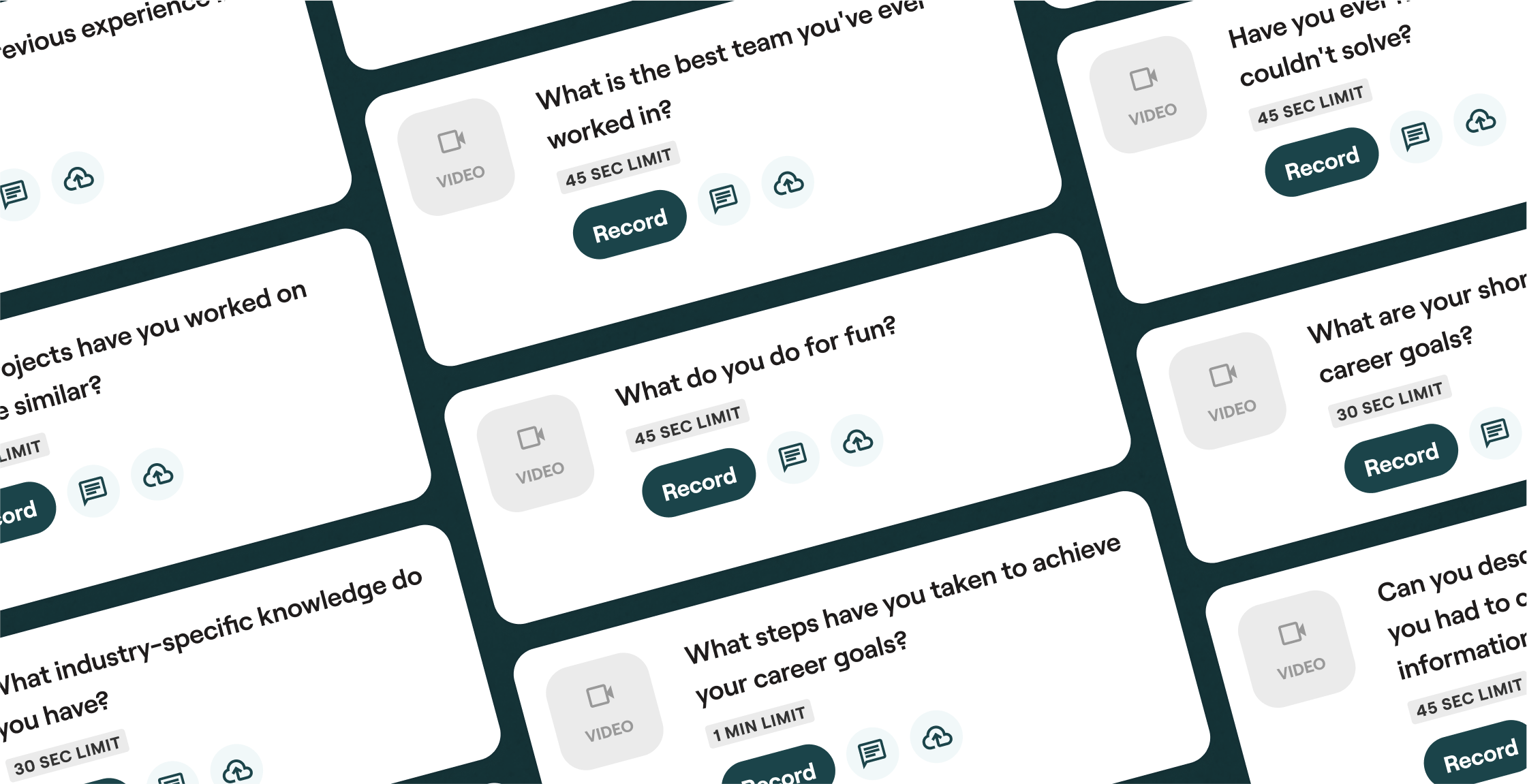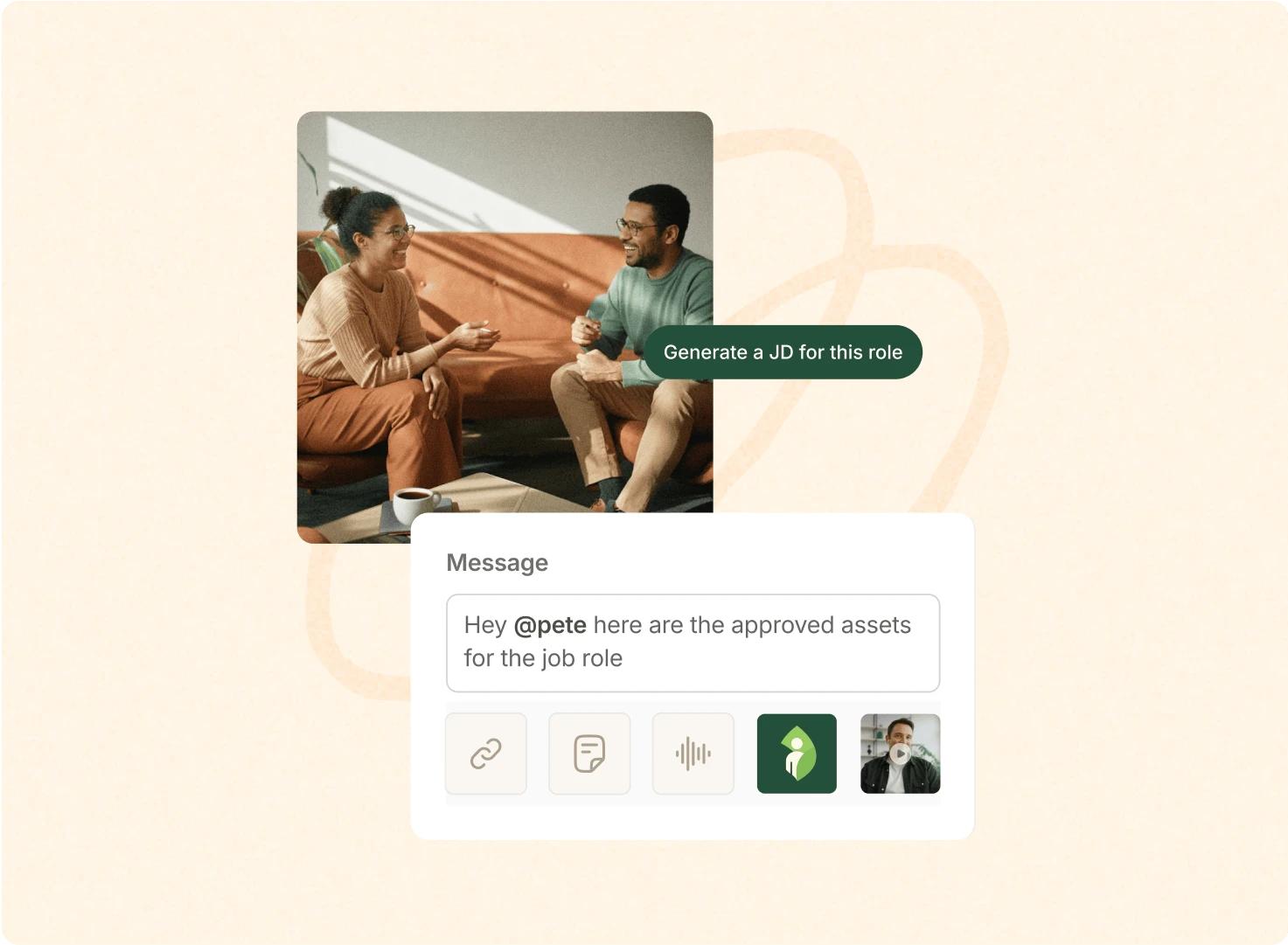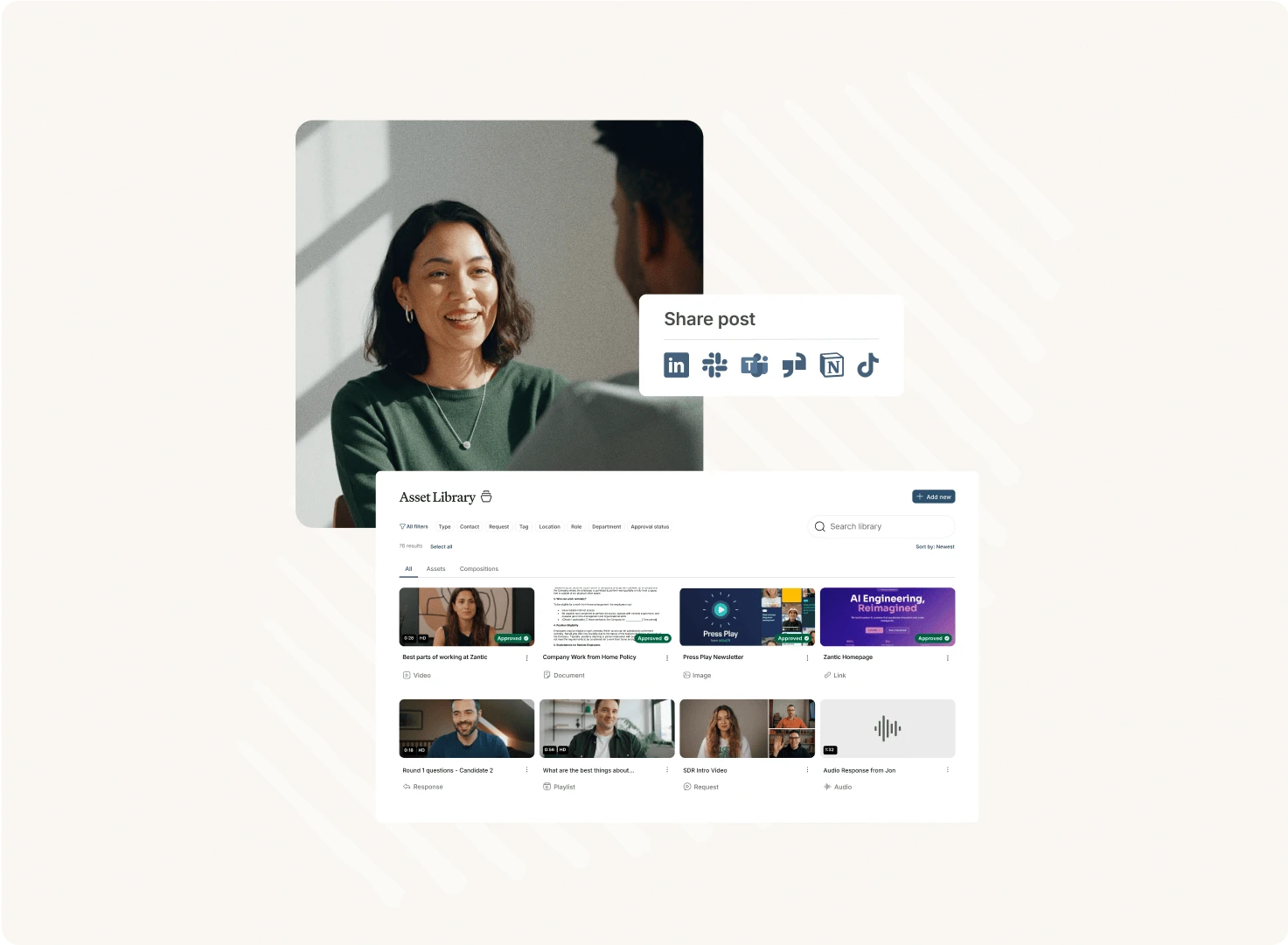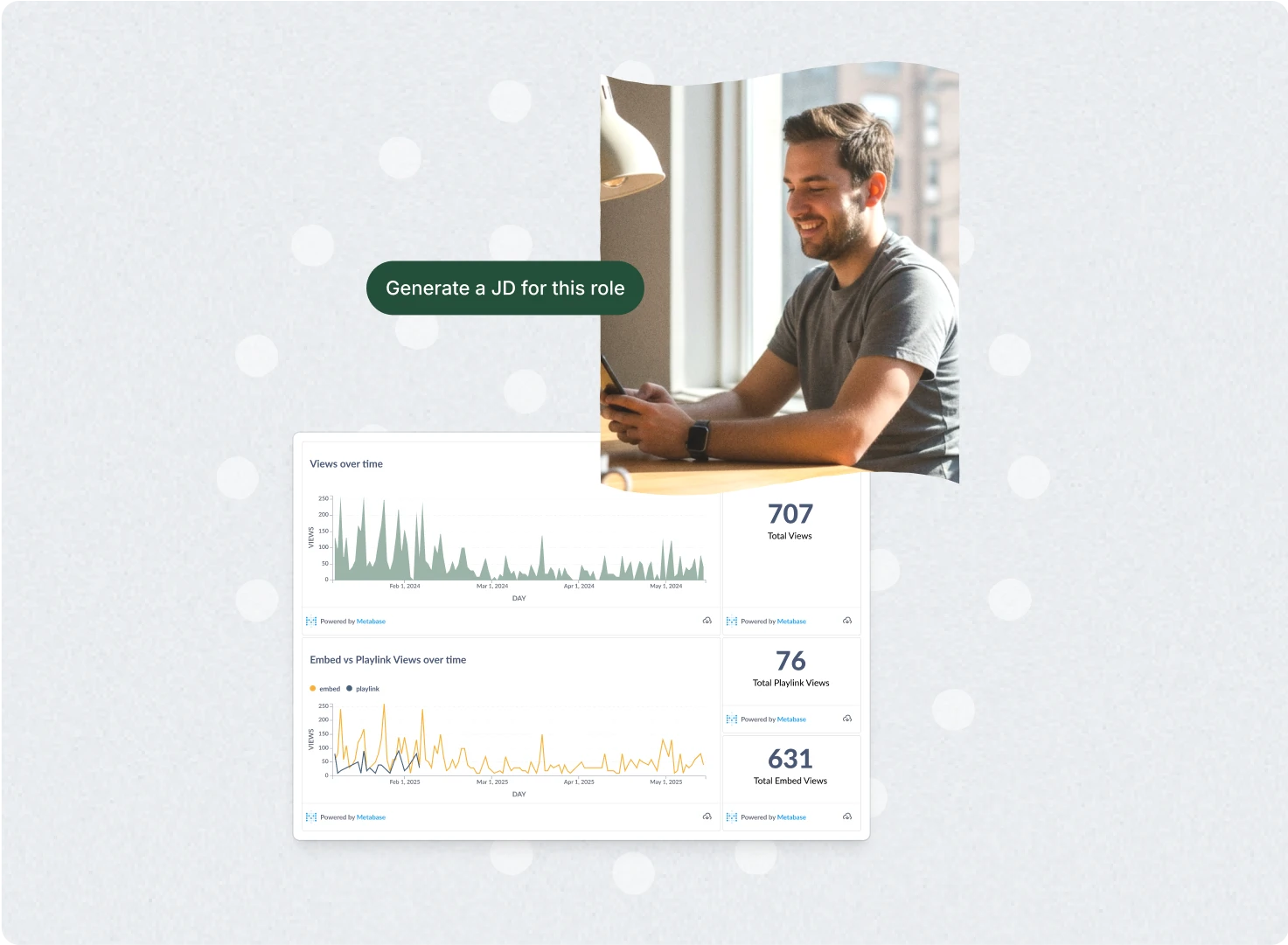For hiring managers, round one of your hiring process can be the most important stage of your recruitment process.
Being able to quickly identify top talent by asking the right questions to gain valuable insights into a candidate's qualifications, hard and soft skills, and workplace cultural fit with your current employees is everything.
Please note, this article does not take into account steps like employee referrals, education certificates, any security checks required, or personal references - we are purely looking at round one candidate questions.
So, let's dive into the 17 questions that can help you quickly determine who progresses to the next round of your hiring process.
Key Takeaways:
- Questions should go the extra mile to cover a wide variety of topics, such as the right cultural fit, problem-solving skills, personal motivation, communication abilities, adaptability, time management, ethics, and much more.
- Asking every candidate the same question is vital to remove biasing, and this where one-way video interviews can help in your first round interviews.
- Make informed decisions throughout the recruitment process with the insights gained from these questions.
- Tools like Vouch can help you streamline your entire recruitment process.
What Essential Skills Questions Should You Ask?
There will always be hard skills that are a must for the role. When it comes to evaluating these skills, the best approach is to look at previous experience, as this will provide real-work, hands-on experience, even if the candidate is applying for a management role.
Q1: What is your previous experience in this role?
This question is a great leading question, as the candidates' past roles and responsibilities will help you quickly identify a "direct match", or if you are could train a candidate who has worked in a similar role. It's a great initial questions for recruiters.
Q2: What projects have you worked on that are similar?
This question expands on Q1 and helps open up the conversation with specific examples of projects the candidate has worked on to demonstrate their expertise for the position.
Q3: What industry-specific knowledge do you have?
Ensuring the candidate has used the industry-specific tools, software, or has certifications that are relevant to the role is vital in the first roun, and a really great question to ask if you are conducting one-way video interviews.
The AI-enabled workspace for talent teams.
- Unified workspace for talent teams
- Accelerate hiring with AI tools
- Auto-generate polished hiring and employer brand content
- Easily repurpose assets across all channel
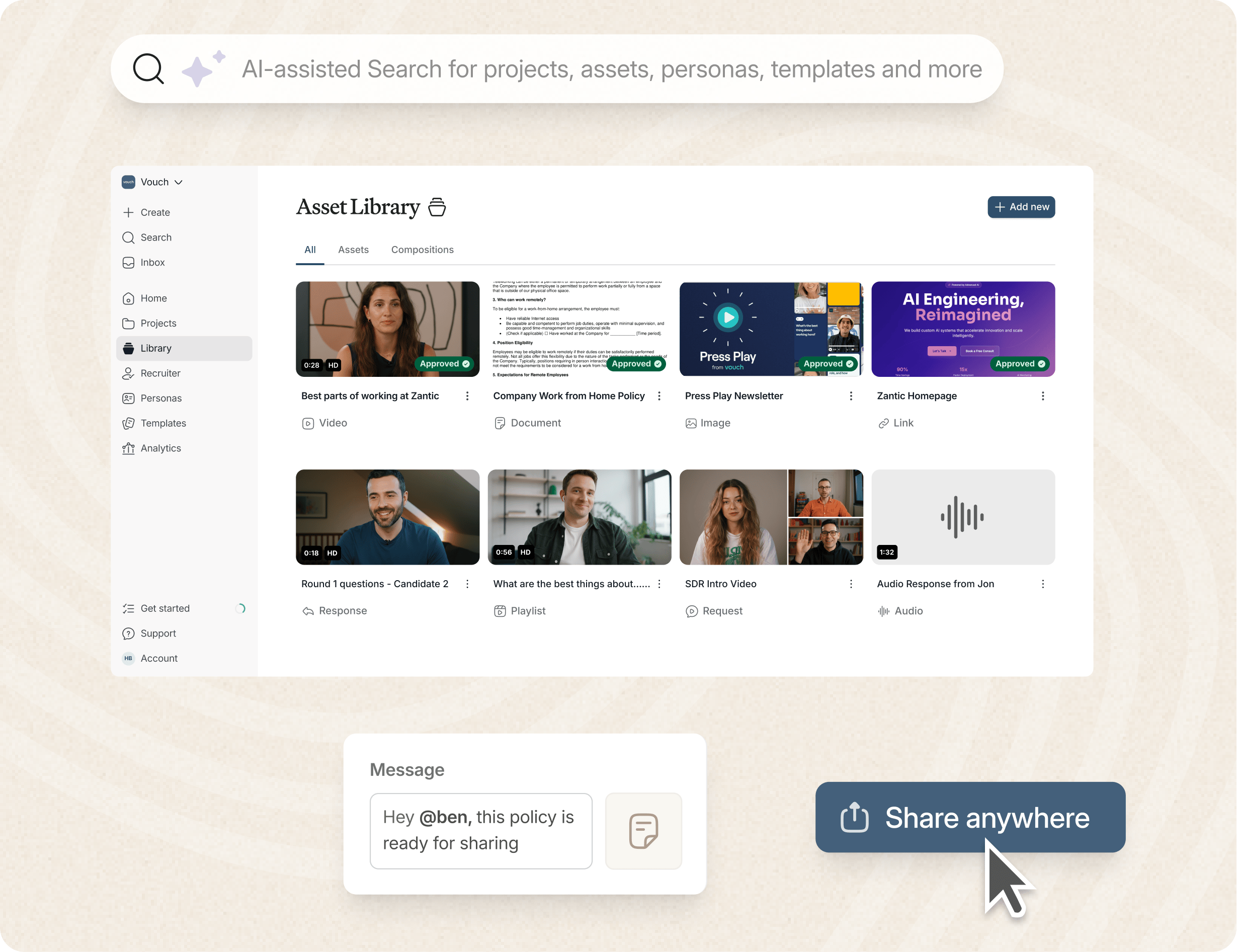
What Cultural Fit Questions Should You Ask?
Assessing your candidate's cultural fit in 2026 is vital to ensure they can do their best work in your team. These questions also help you can gain insight into a candidate's preferred working style and environment so you can quickly make informed decisions.
Q4: Can you describe a work environment where you felt most productive?
This is an amazing question, and if you only ask one cultural questions, this one is perfect. It is also a great indicator that your employer brand is working if you have a lot of candidates saying that their favorite workplace environment is the same as the culture and employer brand you've been promoting.
Q5: What is the best team you've ever worked in?
There is no better way to understand how a candidate will suit your current team than understanding their previous favorite team experiences.
Q6: What do you do for fun?
This question helps you understand what your candidates do for enjoyment outside of work, as often, the best teams at work are also best friends outside of work. Of course diversity and inclusion should always be at the forefront. However, this is a great question to throw in in the first 10 questions, especially if the candidate is nervous.
What Problem-Solving Skill Questions Should You Ask?
Problem-solving and critical thinking skills are crucial for almost every role. To evaluate a candidate's problem-solving abilities, these questions will help. Of course it's also recommended to set up a quiz or survey like a Vouch questionnaire if you are after very specific skills like programming or mathematical skills.
Q7: Tell me about a time when you had to come up with a creative solution to a problem?
This is a great open ended question that has no limits, the candidate can go through any situation where they've had to apply their problem solving skills.
Q8: Have you ever had a problem you couldn't solve?
Knowing a candidate's strengths and weaknesses is vital, and this question will also help you understand if a candidate is upfront with their responses.
What Career Goals Questions Should You Ask?
Understanding a candidate's motivation and career goals is vital in the hiring process. When you know their aspirations and what motivates them, you can understand if your company can cater to their professional growth and gain valuable insights into their commitment and drive.
Q9: What are your short and long-term career goals?
A driven candidate will have defined career progression goals, and know where they want to be now and in 5-10 years. This question can help you separate candidates that have plans from those that don't.
Q10: How do you see yourself progressing in this industry?
This is a great questions, and if you only ask one question around career goals, this is the one. These questions also provide insights into the candidate's knowledge of your industry, and you can gauge their potential contributions to your company very quickly.
Q11: What steps have you taken to achieve your career goals?
This question is quite upfront, but it does help you remove biasing very quickly. For example, a candidate might be doing free studying online or networking to make their career aspirations real.
What Communication Questions Should You Ask?
Effective communications and strong interpersonal skills play a pivotal role in collaboration amongst team mates, your customer interactions, any community services you provide, and your management team. When assessing candidates during the round one hiring process, it is crucial to ask questions that evaluate their ability to communicate effectively, actively listen, and work well with others.
Q12: Can you describe a situation where you had to communicate complex information?
It might take a little while for the candidate to think of an answer to this question, but it is an excellent question as it helps you understand your candidates' communication style.
Q13: Describe a situation where you had to persuade others?
To get a deeper level of understanding of your candidates communication abilities, this question will help you understanding of just how effective and persuasive they can be when working with yoru current staff. This question can also help you guage a candidates ability to take feedback, without directly asking any feedback questions.
Q14: Have you worked remotely before?
Even if you are not looking for a remote worker, understanding how a candidate has managed working remotely is a great insight into their communications abilities.
What Time Management And Adaptability Questions Should You Ask?
Adaptability to adapt to change and time management are crucial skills in today's workplace, as technology and shifting markets can quickly change, such as technology like AI. Here are some example questions.
Q15: Can you give an example of when you had to adapt to a major change?
Knowing how a candidate can adapt to changes is vital in 2026 as we go through major technology and market changes. This question should give you insights into how a candidate can, and is willing to change.
Q16: How do you plan your tasks or projects for time management?
Time management is crucial in most jobs, and seeing how a candidate can break down and prioritize tasks is essential.
Q17: Can you describe a time when you had to juggle multiple projects simultaneously?
When it comes to time and adaptability skills, nothing beats knowing how a candidate can manage multiple tasks at once and the strategies they use.
FAQs
Why is round one of the hiring process considered the most important stage?
Round one is crucial as it allows hiring managers to quickly identify top talent by asking the right questions to gain valuable insights into a candidate's qualifications, hard and soft skills, and workplace cultural fit.
How can asking the same questions to every candidate help remove biasing?
Asking the same questions to every candidate ensures a fair comparison and evaluation process, eliminating potential biases that may arise from varying interview questions.
How can tools like Vouch help streamline the recruitment process?
Tools like Vouch can help streamline the recruitment process by providing a platform for conducting one-way video interviews, allowing hiring managers to efficiently assess candidates and make informed decisions.
What are some examples of essential skills questions that can be asked during the hiring process?
Essential skills questions can include inquiries about a candidate's previous experience in the role, projects they have worked on that are similar, and their industry-specific knowledge.
Why is assessing cultural fit important during the hiring process?
Assessing cultural fit to your current team is vital to ensure that candidates can thrive in the work environment, contribute effectively to the team, and align with the company's values and goals.
Conclusion
First round interview questions are vital to filtering candidates into further interview stages.
With these 17 questions, you should be able to quickly filter the right candidates for your company culture and role. Tools like Vouch, which provide simple one-way video interviews, can also help you quickly filter candidates and focus on top talent while reducing time and costs.
Vouch Makes Round One Hiring Easy!
Loved by companies like Canva, Nike, Cisco, HubSpot, Amazon, and more, tools like Vouch make leveraging video in your business remarkably easy.
Be sure to book a Vouch demo today and chat with a video content expert.
You might also like

Elevate Your Brand Today With Vouch
Discover how Vouch can accelerate talent acquisition while helping you stay on-brand.

